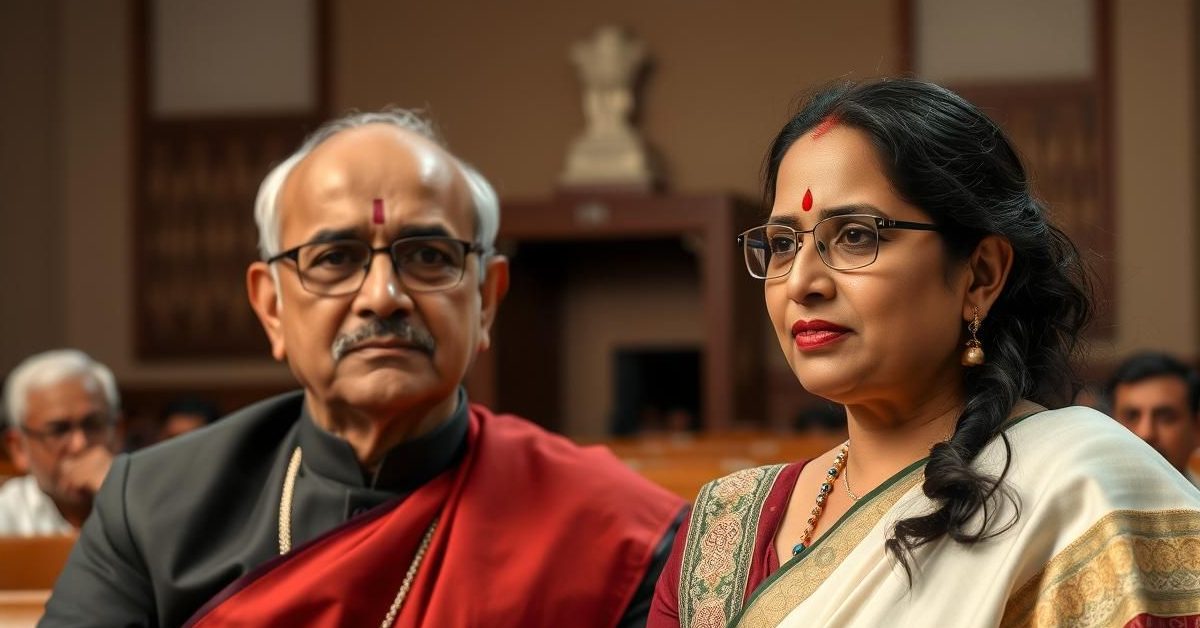The recent nomination of four distinguished individuals to the Rajya Sabha has once again brought attention to the unique process of appointing members to India’s Upper House.
Recent Nominations Spark Discussion
The government recently announced the nomination of four prominent personalities to the Rajya Sabha: former foreign secretary Harsh Vardhan Shringla, Special Public Prosecutor Ujjwal Nikam, Kerala BJP leader C Sadanandan Master, and historian Meenakshi Jain. These nominations fill vacancies created by the retirement of previous nominated members.
This development sheds light on how and why certain individuals are nominated to the Rajya Sabha, a topic of significant interest in Indian polity.
Understanding Nominated Members in Rajya Sabha
The Constitutional Mandate
India’s Constitution, specifically Article 80, lays down the framework for the composition of the Rajya Sabha. It stipulates that the Council of States shall include twelve members nominated by the President.
These nominations are not arbitrary. Clause (3) of Article 80 specifies that the nominated members must be individuals with “special knowledge or practical experience” in fields such as literature, science, art, and social service.
Rights and Limitations
Once nominated, these members enjoy nearly all the powers and privileges granted to their elected counterparts in Parliament. They can actively participate in house proceedings and even choose to join a political party within six months of taking their seat.
However, a crucial distinction exists regarding their voting rights in Presidential and Vice-Presidential elections. Nominated members are not allowed to vote in the election of the President, but they do have the right to vote in the election of the Vice-President.
The Vision Behind Nominated Seats
The provision for nominated seats was a deliberate choice by the Constitution’s framers. N Gopalaswami Ayyangar, a key member of the Drafting Committee, advocated for it, suggesting it would allow “seasoned people” to contribute.
The original intent was to bring non-political experts into parliamentary debates, enriching discussions with their specialized knowledge and experience. Over time, however, concerns have occasionally been raised about the use of these nominations, with some critics suggesting they are at times used for political convenience or to reward loyalties rather than purely for expertise.
Why Rajya Sabha’s Strength Matters Beyond Bills
While the Rajya Sabha’s powers are limited when it comes to Money Bills (it can only recommend amendments), its numerical strength holds significant importance in other areas. The Upper House possesses unique powers that underscore its crucial role in the Indian legislative framework.
For instance, if the Rajya Sabha passes a resolution by a two-thirds majority, it can empower Parliament to make laws on subjects listed in the State List. This resolution can remain in force for up to one year and can be extended.
Similarly, the Rajya Sabha can initiate the creation of new All India Services, common to both the Union and the states. Furthermore, the Rajya Sabha plays a vital role in approving Presidential proclamations related to national emergencies, state constitutional failures, or financial emergencies, particularly if the Lok Sabha is dissolved during such periods.
Key Takeaways
- The President nominates 12 members to the Rajya Sabha under Article 80 of the Constitution.
- Nominees must have special knowledge or practical experience in literature, science, art, or social service.
- Nominated MPs enjoy most parliamentary privileges and can join a political party within six months.
- They can vote in the Vice-Presidential election but not the Presidential election.
- The provision aims to bring non-political expertise into parliamentary debates, though its application has sometimes drawn criticism.
Understanding these intricate aspects of the Rajya Sabha’s composition and powers is crucial to appreciating the checks and balances within India’s parliamentary democracy.















